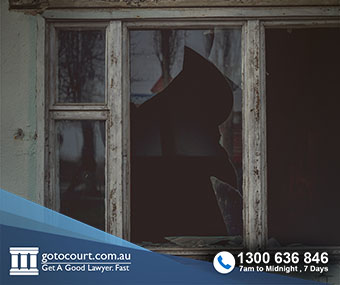Perverting the Course of Justice (Vic)
Perverting the course of justice is an offence consisting of any conduct done in order to prevent justice being served upon the offender or upon another person. It is a serious offence that carries a maximum penalty of 25 years imprisonment. However, there is a wide spectrum of offending that falls within the category of perverting the course of justice, ranging from relatively trivial offending to extremely serious offending, depending on the nature of the conduct, how long it was sustained for and its potential consequences.
In Victoria, the offences of perverting the course of justice or attempting to pervert the course of justice are common law offence and the penalties applicable to them are codified in Section 320 of the Crimes Act 1958.
Where is the charge heard?
Charges of perverting the course of justice are heard in the County Court of Victoria.
Defences
For the court to find a person guilty of perverting the course of justice, the prosecution must prove beyond a reasonable doubt that the accused did an act intentionally and that the act was intended to pervert the course of justice and that the course of justice was perverted. To find a person guilty of attempting to pervert the course of justice, only the first two of these elements must be proven.
It is a defence to a charge of perverting the course of justice if the accused did not do the act intentionally or if they did not intend the act to pervert the course of justice.
A charge of perverting the course of justice can also be contested on the basis of disputed facts.
How serious is perverting the course of justice?
Offences of perverting the course of justice can be very serious but they can also be relatively trivial. The seriousness of an offence and the severity of the sentence received depends on the nature of the conduct, how long it was sustained and how much planning and premeditation was present.
In considering the seriousness of a case of perverting the course of justice, the court will look at:
The circumstances of the offence
What acts the offender committed and the context in which they were committed will determine how serious the offence is and how the offender should be sentenced.
Premeditation and planning
When the offending ‘evolved’ rather than following a premeditated course, this will reduce the level of culpability.
Success or failure
Unlike many other offences, an attempt to pervert the occurs of justice is not made substantially less serious by a low likelihood that it would have succeeded. Instead, the seriousness of the attempted offence will be measured by the potential consequences if it had succeeded.
Offences involving bail
Courts have held that attempts to coerce a police officer to grant bail are very serious. Fraudulent conduct to induce a court to grant bail where it should not be granted is also viewed very seriously.
Assisting and offender or witness to abscond
Perverting the course of justice by assisting an offender, particularly one who has committed a serious offence, to abscond will be dealt with harshly. Those who seek to interfere with witnesses attending to give evidence will also be sentenced severely.
Making a false accusation
A person can be found guilty of perverting the course of justice if they make a false accusation of a crime. How a person will be sentenced for this will depend on the seriousness of the consequences for the person wrongly accused and the level of planning and persistence by the offender. If the offender subsequently recanted his or her false accusation this will mitigate the seriousness of the offence and may be used as evidence of remorse.
False alibi
Enlisting others to provide a false alibi is treated seriously as it interferes with the processes of the law and seeks to induce others to commit serious offences
Concealing or falsifying evidence
Attempts to conceal evidence may amount to perverting the course of justice but courts have found that this is not always the case.
Attempts to bribe/manipulate police officers
Attempt to bribe police are treated very seriously, even where the bribe was not accepted. Attempts to secure the withdrawal of charges by way of threats of violence or legal proceedings made to police is treated even more seriously.
Attempts to bribe the judiciary
Attempts to bribe the judiciary are treated very seriously as public confidence in the integrity and incorruptibility of the judiciary must be maintained.
If you need legal advice or representation in criminal matter of any other legal matter please contact Go To Court Lawyers.








